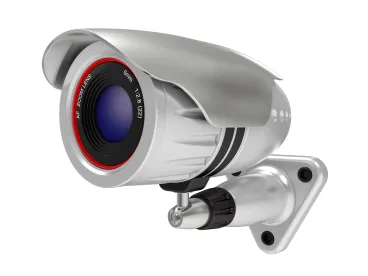In 2014, employees across the United States filed dozens of lawsuits under both the federal Fair Labor Standards Act (FLSA or the Act) and state law alleging that they and the classes of employees they sought to represent should be paid for time spent waiting for and passing through security lines, bag checks, and metal detectors. Some of these suits were emboldened by the US Court of Appeals for the Ninth Circuit’s ruling in Busk v. Integrity Staffing Solutions Inc. in 2013, which was overturned by the US Supreme Court in December 2014. This article describes the legal landscape leading up to the Busk Supreme Court decision, analyzes the Busk reasoning and implications, and identifies issues and areas of risk that remain even after the landmark Busk decision.
HISTORY OF THE FLSA AND THE PORTAL-TO-PORTAL ACT
Enacted in 1938, the FLSA dramatically changed US labor laws and established a national minimum wage that guarantees time-and-a-half for overtime in certain jobs and implements a 40-hour workweek. But despite its sweeping changes, the FLSA did not define some of the Act’s key terms, including “work” and “workweek.”
The breadth of the FLSA’s protections, coupled with the uncertainty of its terms, quickly led to litigation, and by the mid-1940s, the Supreme Court had been called on to define “work” and “workweek” in light of the lack of statutory definition. The Court defined these terms broadly, describing “work” as “physical or mental exertion (whether burdensome or not) controlled or required by the employer and pursued necessarily and primarily for the benefit of the employer and his business.” The Court defined the term “workweek” as “all time during which an employee is necessarily required to be on the employer’s premises, on duty or at a prescribed workplace.” The effect of these definitions essentially required employers to pay workers for all time that they spent at the workplace, as long as there was some benefit to the employer.
In response to the Court-imposed definitions and the staggering exposure that employers faced if the Act was left in its then form, Congress clarified the FLSA’s goals by enacting the Portal-to-Portal Act (PPA). Congress’s stated intent in passing the PPA was to override judicial interpretation of the FLSA, which disregarded “long-established customs, practices, and contacts between employers and employees, thereby creating wholly unexpected liabilities, immense in amount and retroactive in operation, upon employers.”
Among the PPA’s changes, it explicitly carved out two categories of activities that previously would have been compensable and declared them noncompensable. These activities include (a) “walking, riding, or traveling to and from the actual place of performance of the principal activity or activities which employees are employed to perform” and (b) “activities which are preliminary to or postliminary to said principal activity or activities” as long as they “occur either prior to the time on any particular workday at which such employee commences, or subsequent to the time on any particular workday at which he ceases, such principal activity or activities.”
SECURITY LINE AND BAG CHECK LAWSUITS IN THE LOWER COURTS
In the early 2000s, employees in California started filing class actions based on California’s interpretation of time worked to claim compensation for time that had historically not been compensated. Following this trend, employees outside California started using the PPA definitions of compensable activity to file lawsuits alleging that the time they spent either (1) waiting to walk through and walking through metal detectors and other security officer screenings or (2) waiting for a manager to check their bags at the end of their shifts before leaving working facilities should be compensated.
One such case, filed against Integrity Staffing Solutions in the District of Nevada in 2010, accused the staffing company of failing to compensate its warehouse workers for the time they spent—allegedly up to 25 minutes per day—waiting to be searched and undergoing a security screening that included removing their wallets, keys, and belts and passing through metal detectors. The US District Court for the District of Nevada dismissed the plaintiffs’ complaint, finding that the time spent in security screening was not compensable under the FLSA.
On appeal, the US Court of Appeals for the Ninth Circuit reversed the district court’s dismissal, holding that the security screening was “integral and indispensable” to the employees’ principal activities. Namely, the court held that such activities were necessary to the principal work that the employees performed because it was “required by the employer” and “done for the benefit of the employer.”
After the Ninth Circuit’s Busk decision, dozens of class actions were filed against retailers and warehouse operators alleging that they unlawfully failed to pay employees for time spent undergoing security screenings both at the end of shifts and before meal breaks. Most complaints asserted multiple causes of action under federal and state law, including failure to pay proper hourly wages, failure to pay proper overtime, and failure to provide rest periods and/or meal periods. Sued employers included discount stores, home goods and specialty stores, superstores, and Internet retailers that operated warehouses. Even before the Busk decision elevated to the Supreme Court, employers had some success in resisting unfavorable rulings and class certification. Defense-favorable rulings include a denial of class certification in which a court noted that a retailer’s bag-check policy was random only applied to those who had bags, and that the employees’ estimates of how long the bag searches lasted ranged from one minute to 30 minutes.
The Ninth Circuit Busk decision discounted other circuit court opinions that had previously held that security screening time was not compensable. For example, the US Court of Appeals for the Second Circuit, in Gorman v. Consolidated Edison Corp., held that time approximated to be “between ten and thirty minutes a day passing through multiple layers of [government- and employer-mandated] security” checks upon entry and exit of a nuclear power plant was not compensable work time because the security checks were not principal activities of the job. Similarly, in Bonilla v. Baker Concrete Construction, the US Court of Appeals for the Eleventh Circuit held that construction workers at an airport terminal were not entitled to compensation for time spent going through airport security before their shifts because the security screenings were not principal activities.
Given the apparent circuit split created by the Ninth Circuit ruling, the security screening issue was ripe for Supreme Court review.
THE BUSK DECISION
The Supreme Court granted certiorari of the Ninth Circuit’s Busk decision in March 2014 and held oral argument in October. On December 9, 2014, the Supreme Court unanimously reversed the Ninth Circuit, with Justice Clarence Thomas writing the decision for the Court. The Court ruled that, by applying a “benefit of the employer” test, the Ninth Circuit decision mistakenly conflated the definition of “work” under the FLSA with that of “principal activity” under the PPA. It held that the security screening described in the plaintiff’s complaint was not a principal activity because Integrity Staffing did not employ its workers to perform that activity. Rather, it employed the warehouse workers to retrieve products from the warehouse shelves for distribution. The screening was likewise not “integral and indispensable” to the principal activity because it was not “an intrinsic element” of the activity of retrieving products, nor was it an activity “with which the employee cannot dispense if he is to perform his principal activities.” Rather, the security screening time was merely an “adjunct or appendage” to the primary job responsibilities. The Court ruled that the Ninth Circuit’s error was in focusing on whether the activity was “required” by and “benefited” the employer; under the PPA, more than just a benefit to the employer is required to find that an activity is a “principal activity” within the meaning of the PPA.
IMPLICATIONS OF THE BUSK DECISION ON SECURITY SCREENING LAWSUITS AND OTHER WAGE AND HOUR ISSUES
The Supreme Court’s Busk decision was a significant victory for employers everywhere. It has already stemmed the onslaught of security screening cases filed in states whose wage and hour laws mirror the FLSA. But Busk’s effect may be further reaching than just cases that involve security screenings and bag checks. The Court’s guidance on what constitutes “integral and indispensable” may also affect wage and hour cases that allege off-the-clock work, including work at home while preparing to start a shift, such as checking email, gathering paperwork, and charging computer batteries; traveling to the first job of the day; booting up and turning off computers at work; and donning and doffing equipment and uniforms.
LINGERING RISKS AND STATE LAW CONFLICTS
Although Busk has decreased the risk of federal lawsuits in the security screening arena, many state laws vary from the FLSA. In states where wage and hour protections mirror both the FLSA and the PPA, Busk will almost certainly preclude similar suits. Even in states where the laws mirror the FLSA but there is not legislation explicitly adopting the PPA, arguments will be made that the principles behind Busk provide persuasive authority. This is because the PPA was passed merely to interpret Congress’s intent with the FLSA and, therefore, without a statement from the state disavowing the PPA, its provisions also should be read into those states’ statutes. That said, plaintiffs will continue to fight in those states that maintain a different legislative framework than the FLSA for defining time worked. In fact, Busk and a number of related cases remain to be litigated on a variety of state law claims. For example, in cases related to Busk, the plaintiffs contend that some states, such as California, have opted for a “time worked” definition that diverges from the FLSA as amended by the PPA. California’s statutes and regulations define hours worked as “all time during which an employee is subject to the control of the employer” and “suffered or permitted to work.” Some have argued that this language requires compensation for many of the activities the PPA renders noncompensable. Even in California, however, employers have been able to defend against class actions in this arena, including a recent federal district court case in Los Angeles that denied class certification because employees had the option of forgoing a security check altogether by choosing not to bring a bag to work.
PRACTICAL ADVICE FOR AVOIDING AND POSITIONING TO DEFEND AGAINST LITIGATION
Even if you are in a state that follows the FLSA, employers that conduct security screenings and bag checks still may wish to review current policies and practices for risk. Concepts to consider include whether bag checks or other security screenings can be limited to no more than a few minutes, which creates an additional argument that the time is de minimis and thus not compensable, and whether the configuration of the screening process can be improved or otherwise altered to minimize wait times while still fulfilling business needs.





 />i
/>i

